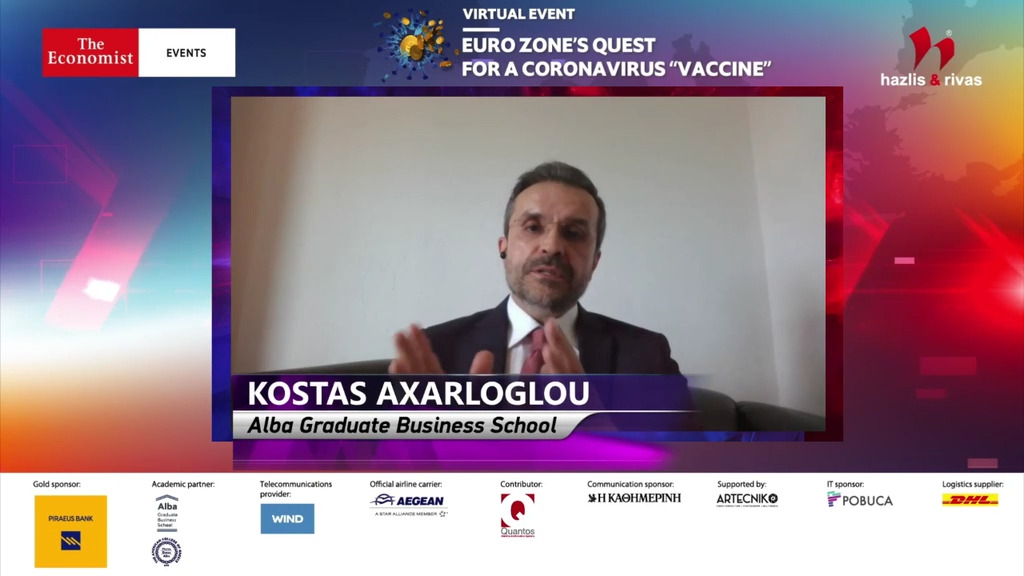Euro Zone's Quest for a Coronavirus "vaccine"

The global economy was already on a slowdown when the COVID-19 outbreak appeared, leading the world to one of the most serious pandemic diseases during the last 100 years.
A health crisis translates to an economic crisis and the scenario of a deep recession comes to the fore. Within this environment, Europe is once again called upon to prove that it can effectively manage one more crisis, being solidary and united. Will Europe succeed? The Economist Events, being in search of the priorities, as well as of the appropriate economic policy tools that will keep the euro strong and stable against the new coronavirus crisis and its implications, organized the digital event EURO ZONE’S QUEST FOR A CORONAVIRUS “VACCINE” with the participation of international and greek senior executives and members of state.

Among the speakers was Dean K. Axarloglou who shared his thoughts about the needed fiscal stimulus and the challenges that lie ahead and concluded that the pre-COVID19 “normal” will be significantly different than the post-COVID19 “new normal”
Most spesifically :
Fiscal Stimulus
- Significant fiscal stimulus of $10 trillion to jump start the world economy.
- In G-20 countries the fiscal stimulus corresponds to 11% of GDP.
- In Europe: Fiscal stimulus of 1.85 trillion euros (including the 750 billion of the “Next Generation EU” initiative).
The Challenge: The post COVID-19 “New Normal”:
The launch of an effective vaccine will be followed by a burst in spending and economic activity. But the “New Normal” will be characterized by:
- Distance is back: travelling restrictions, social distancing, new social patterns of remote engagement (e.g. e-commerce, e-communication, etc.).
- Resilience and Efficiency: Building up resilience/flexibility in organizations might sacrifice some efficiency.
- Rise of “contact-free” economy: Remote engagement in transactions, communication, work (e.g. teleworking) provision of services (e.g. telemedicine, remote learning).
- More government intervention and regulations: More monitoring of how the fiscal stimulus is managed and spent.
- Changes in consumer behavior, industry structure, market positions, and the labor market.
The virtual event was viewed by 48.000 guests from more than 40 countries.





